Duke CE Leadership Series
Today, in a world of exponential change and complexity, our organization and leadership models, tools and practices are being stretched to their breaking points. Problems are more complex and change faster, leaders are more important than ever, but only if they are ready for what’s next.
Duke Corporate Education (Duke CE) has designed this Leadership Series as a complimentary opportunity for you to explore these challenges and new solutions with experts from Duke CE and our global educator network. Episodes are 45 minutes with time for Q&A.
On-Demand Leadership Series Episodes
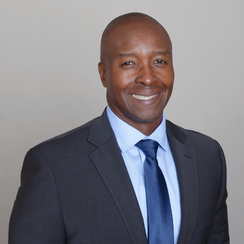
Bruce Crawford, Senior Vice President – Chief of Innovation and Director of the Global Digital Center of Excellence (GDCoE) at Jacobs
Transformational Technical Leadership
for the New Now
Leaders and organizations need to adapt at speed and scale to embrace the realities of the new now.
In this Leadership Series episode, Bruce Crawford shares his inspirational story and discusses what it takes to be a transformational leader in a complex technical environment.
This webinar is jointly hosted by Duke Corporate Education (Duke CE) and The Learning Tree International, who have partnered to create the Transformational Technical Leadership Experience, a certificate program launched to turn technical experts into transformational leaders.

Dr. Vivienne Ming explores maximizing human capacity as a theoretical neuroscientist, delusional inventor, and demented author
The Neuroscience of Trust and Implications for Diverse Teams
In this Leadership Series episode, Dr. Ming will discuss The Neuroscience of Trust and how our brains process information about other people, why creating a culture of trust in diverse teams is harder than it looks, and what we need to do about it. We’ll discuss the research and experience in real organizations and explore ways leaders and teams can “hack” their brains and overcome instincts that impede their ability to hire and nurture wining diverse teams.

Sanyin Siang, CEO coach, author, and Executive Director of the Fuqua/Coach K Center on Leadership & Ethics (COLE) at Duke University
Team Coaching: The Leader’s Playbook for High-Performing Teams
In today’s environment, it isn’t enough for leaders to act like captains. Leaders must think and act like great coaches for their teams. In this webinar, learn the four components of team success and what it means to think and act like a team coach who can draw out the best in their people and deliver exceptional results.

Dr. Srini Pillay, Harvard-trained psychiatrist and brain researcher, entrepreneur, CEO of NeuroBusiness Group, and co-founder of Reulay for Leadership technology
Rehumanizing Leadership: The Time is Now
We continue to update our concepts of organization and leadership, but what’s needed is a more fundamental paradigm shift. In this session with Dr. Srini Pillay, we will explore what rehumanizing leadership means from a brain science perspective, and how to create and lead environments where people are encouraged to bring their whole, integrative selves to work, thereby elevating collective creativity, productivity and collaboration.
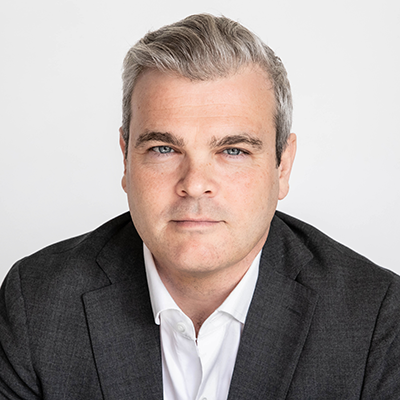
Ryan McManus, Co-Founder and CEO of Techtonic
Digital Leadership for Digital Transformation
Companies can’t win in the digital economy with analog tools and frameworks, but many discussions around digital start focused on the technology. Successful organizations demystify digital and identify the strategic and organizational changes required to win. Leaders are looking to develop new digital mindsets and deploy new toolsets and approaches to strategy and transformation to lead their organizations through this generational change, and to build their confidence to move forward and enable transformation at speed and scale. Learn how you can transform yourself, your team and your organization by re-orienting for the digital future.
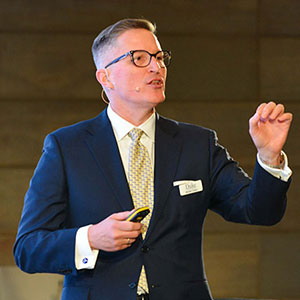
Michael Chavez, Global Managing Director, Duke Corporate Education
Putting Purpose Back into Business
Amidst a global pandemic and widespread social unrest, our world is becoming increasingly volatile and uncertain. In this environment, where strategy is transient, companies need to look to organizational purpose to provide a more enduring sense of direction. A clear and inspiring purpose can help employees navigate ambiguity and make decisions. It can also be a source of inspiration, answering the larger “Why?” question, which has become increasingly important in a world where employees value meaning as much as money.

Dr. Srini Pillay, Harvard-trained psychiatrist and brain researcher, entrepreneur and CEO of NeuroBusiness Group
Managing through a Pandemic:
Leading & Learning with the Brain in Mind
The most recent pandemic has materially changed the way we think, feel and live. Many leaders are in “survival” mode, preoccupied with defending their companies and employees from disruption and potentially damaging financial consequences. In this new psychological, social and financial environment, how can leaders distinguish themselves and inspire their teams to succeed and thrive?

Ryan McManus, Co-Founder and CEO of techtonic.io
Strategy in the Digital Revolution
Today, every business is focused on digital transformation, yet most organizations are struggling to realize value from their efforts and investments. Less than 20% of business leaders believe their digital transformation efforts have been successful. With unprecedented access to data and technology, how is it that firms and their leaders are experiencing such disappointing results? At the root of the problem is the disconnect between how leaders understand strategy and the new rules of the digital revolution.

Joe Perfetti, Duke CE Innovation Fellow & Leading Expert in Corporate Finance and Strategy
The Agile Dashboard
In the age of disruption, we need different, more forward-looking metrics to indicate if our business is agile enough to win the marketplace tomorrow. The Agile Dashboard was developed to help organizations address this gap by creating a set of more forward-looking, predictive metrics centered on Speed, Interactivity, and Pivot.

Rita McGrath, Globally-Recognized Expert on Strategy and Innovation
Seeing Around Corners: Spotting Inflection Points in Business Before They Happen
What is strategy in an age of exponential change? And, how do we ensure our organizations are agile enough to see and seize the next wave of value? During this webinar, you will learn why businesses must become strategically agile, constantly adapting to catch the next value wave and how leaders can develop the skill to see early signals of change and prepare their organizations to act quickly.

Hari Nair, Advanced Leadership Fellow, Harvard University

N Venkat Venkatraman, Author
of The Digital Matrix
Futureproofing Organizations for Digital Disruption
Every industry faces new realities in the digital future. Business models and practices that have been tried-and-tested in the industrial age may not work going forward. Your competitors in the future are not only those companies that you have competed against in the past.
Companies that are “digitally-born” bring new competencies rooted in digital technologies. Futureproofing is about preparing your next-generation leaders to recognize and respond to these shifts and prepare for a digital future. This webinar will help you understand key futureproofing concepts and ways to put them into action.
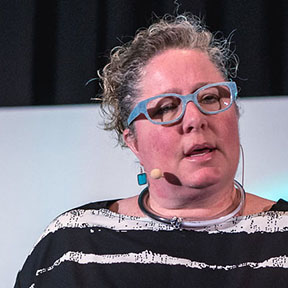
Heather McGowan, Future-of-work strategist, author
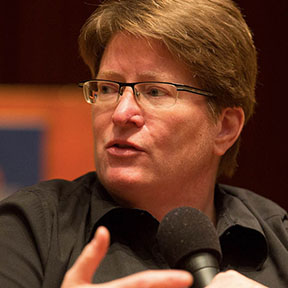
Chris Shipley, technology analyst, author, entrepreneur, convener and photographer
The Future of Learning: Learn to Work
We must move from learning in order to work to working in order to learn continuously and prepare ourselves for the unknowns of continuous change. The fourth industrial revolution liberates us from the work of processing and executing routine tasks best done by machines.
This shift in work places pressure on us to rethink our systems of work and learning, and even how we describe work itself. We should now think of work as learning or capacity building. In this view, the creation of products and services provides evidence that learning and capacity-building are taking place. On the webinar, Heather and Chris discuss how to re-imagine the career arc, and re-think and re-tool our organizations for a very different future of work and learning.

Sanyin Siang, Executive Director at the Coach K Center for Leadership and Ethics
Get Ready to Launch Your Next Innovation
Learn how to tackle your own launch – whether it is launching a new idea, project, business or career. Launching anything successfully means changing the status quo and overcoming uncertainty. Successfully navigating the challenges associated with launching something new requires clarity of purpose and intentionality. Hear examples and lessons from industry leaders and the sports world including, Apple, HP, and the NFL.

Rob Cross, Edward A. Madden Professor of Global Business, Babson College and faculty, Duke CE’s Global Educator Network
How Successful Leaders Manage Collaborative Overload
The collaborative intensity of work has exploded over the past decade. Most knowledge workers or leaders spend 85% or more time in a given week on email, in meetings and on the phone. Learn how high performing organizations and professionals harness the power of networks to innovate, execute AND gain 20% of their time back by avoiding the pitfalls of collaborative overload.

Justin Ferrell, creator, collaborator and educator
Designing Organizations for Digital Disruption
Technology is rapidly disrupting how we interact and work. As a result, our organizational structures are becoming outdated and need to be more agile to respond to these shifts. In a human-centered approach, learn from digital user behavior to design creative and agile teams that enable organizations and build organizational and team change.
Other Featured Webinars

Michael Chavez, Global Managing Director, Duke Corporate Education
Leading in Crisis: Building Resilience in Challenging Times
Leaders today find themselves in uncharted territory, never before seen in their lifetimes. The difficulty of leading in disorder comes not just from the nature of the crisis at hand, but also from the challenge of working with organizational models that were built for scale, efficiency and stability. Worse, our brain wiring constrains us from the creativity we need to improvise in a totally new set of circumstances. Learn why a human approach based upon understanding reality, anchoring in meaning and empowering improvisation is more important than ever.
